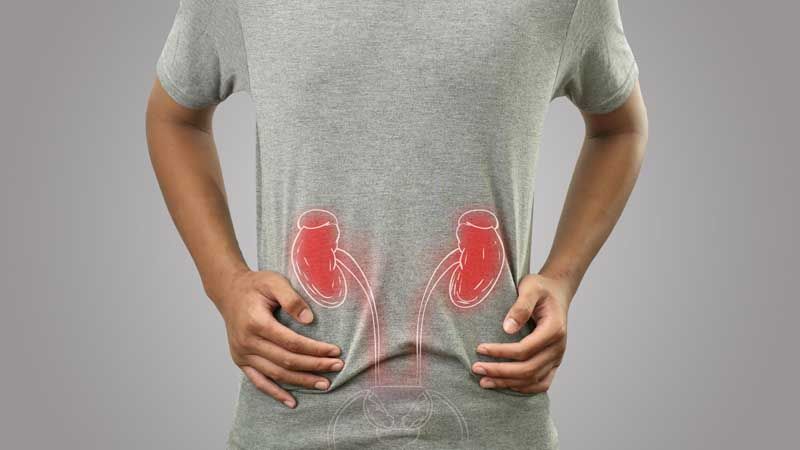Embracing Midlife: How Good Lifestyle Can Transform Your Menopause Journey?
- 1 month ago
Menopause marks the end of menstrual cycles and the transition into a new hormonal phase in women. It generally begins in the late forties to early fifties, although the transition, called perimenopause, can start several years earlier, often in the late thirties or early forties.
Why Menopause Deserves More Than “Just Dealing With It”?
Menopause is a natural stage of life that every woman experiences, yet it is often whispered about, overlooked, or dismissed with a simple “you will just have to deal with it.”
Globally, over 1 billion women are expected to be postmenopausal by 2030, yet many are left navigating this stage with minimal guidance.
During this transition, hormonal changes can cause:
- Irregular periods
- Hot flashes and night sweats
- Mood swings
- Sleep disruptions
- Weight changes
- Shifts in bone density
The good news is that menopause is a normal part of life, and with the right lifestyle strategies, women can experience it as a phase of renewal rather than decline.
Also Read: Dietary Tips For Menopause
What Is Lifestyle Medicine?
Lifestyle Medicine is a science-backed, holistic approach to health that focuses on prevention and management of chronic conditions through everyday choices rather than relying solely on medication or procedures. It emphasizes six core pillars:
- Nutrition
- Physical activity
- Stress management
- Restorative sleep
- Social connection
- Avoidance of harmful substances
Each pillar plays a unique role in balancing hormones, boosting energy, and improving overall wellbeing during menopause.
Unlike conventional approaches that treat symptoms in isolation, Lifestyle Medicine looks at the whole person. It recognizes that menopause is not just a biological process but a life stage where lifestyle habits profoundly influence physical, mental, and emotional health. By adopting simple, evidence-based changes, women can significantly reduce symptoms such as hot flashes, night sweats, mood swings, brain fog, sleep disturbances, and even metabolic shifts.
1) Nutrition: Fuel Your Body For Midlife
Hormonal changes can slow metabolism and alter body composition, making it easier to gain weight and lose muscle. Eating a balanced diet rich in colorful vegetables, fruits, lean protein, and healthy fats supports metabolism, preserves muscle mass, stabilizes mood, and protects bone health. Foods rich in calcium and vitamin D are particularly important for maintaining bone density. Limiting added sugars and processed foods helps prevent weight gain and energy crashes. Adopting mindful eating habits enhances digestive health and provides a sense of control over daily well-being.
2) Movement: Strength In Motion
Regular physical activity helps counteract the loss of muscle mass, supports bone strength, improves cardiovascular health, and positively impacts mood and sleep. Even thirty minutes of walking, swimming, or light resistance training daily can produce noticeable benefits. Strength training is especially valuable during midlife as it helps maintain muscle tone and supports metabolic health. Activities that promote balance and flexibility, such as yoga or tai chi, can also reduce the risk of falls and improve functional fitness.
3) Stress Management: Calm Is Key
Menopause can increase sensitivity to stress, which may exacerbate hot flashes, mood swings, and sleep disturbances. Mindfulness practices, meditation, deep breathing, and journaling help regulate stress hormones, support emotional resilience, and promote a sense of calm. Even short daily practices can have a cumulative effect, improving both mental and physical health over time.
4) Sleep: Restorative Nights Matter
Hormonal fluctuations often disrupt sleep, causing night sweats and difficulty falling or staying asleep. Prioritizing sleep hygiene makes a significant difference. Tips include:
- Keep the bedroom cool, dark, and quiet
- Maintain consistent sleep and wake times
- Limit screen exposure before bed
- Adopt relaxation rituals before sleep
Better sleep supports hormone regulation, cognitive function, mood stability, and overall energy levels.
5) Social Connection: You Are Not Alone
Midlife can feel isolating due to changing roles, evolving family dynamics, and new challenges. Maintaining supportive relationships, sharing experiences, and participating in community or social groups can buffer stress, enhance emotional health, and provide a sense of belonging. Strong social connections are consistently linked to better physical and mental health outcomes.
6) Avoiding Harmful Substances
Excess alcohol, smoking, and high caffeine intake can worsen menopausal symptoms, disrupt sleep, and increase long-term health risks. Reducing or eliminating these substances supports hormonal balance, cardiovascular health, and overall wellbeing.
Small Changes, Big Impact
Studies indicate that approximately 70% of women who make lifestyle changes, including improving diet, increasing physical activity, reducing alcohol and caffeine, and practicing stress management, notice relief from menopause symptoms. Even minor adjustments, such as ten minutes of morning stretching, a daily walk, or a short meditation session, can create ripple effects that enhance energy, stabilize mood, improve sleep, and support overall health.
Busting Common Myths
1. Myth: Menopause always means weight gain
Reality: Balanced nutrition and regular exercise help maintain healthy weight.
2. Myth: Hormone therapy is the only solution
Reality: Lifestyle changes complement medical approaches and can reduce symptom severity.
3. Myth: It is too late to make a difference
Reality: Positive lifestyle interventions yield benefits at any age.
Start Your Lifestyle Medicine Journey
Women can begin incorporating Lifestyle Medicine principles through a structured two-week challenge:
- Nutrition: Add a serving of vegetables to every meal
- Movement: Walk or perform light resistance exercises for 10 to 15 minutes daily
- Stress: Practice a five-minute breathing exercise or journaling
- Sleep: Maintain a cool and screen-free bedroom environment
- Connection: Connect with friends or family at least twice this week
Tracking progress and noting changes in symptoms and wellbeing can help build momentum and reinforce positive habits.
Take Action Today
Menopause is not a disease, and discomfort is not inevitable. With mindful attention to lifestyle habits, women can ease symptoms, protect long-term health, and even enhance overall well-being. Lifestyle Medicine empowers women to take control, ease symptoms, protect long-term health, and embrace midlife with confidence. Even small, consistent actions can transform this stage of life into one of strength, resilience, and opportunity.
Women are encouraged to seek guidance from qualified professionals to tailor Lifestyle Medicine practices to their individual needs. The Wellness Corner app provides access to expert consultations, allowing women to build personalized plans that address nutrition, exercise, stress management, and other key areas.
References
Medical News Today. Menopause: Symptoms, stages, and treatment options. Link
MSD Manuals. Menopause Overview. Link








